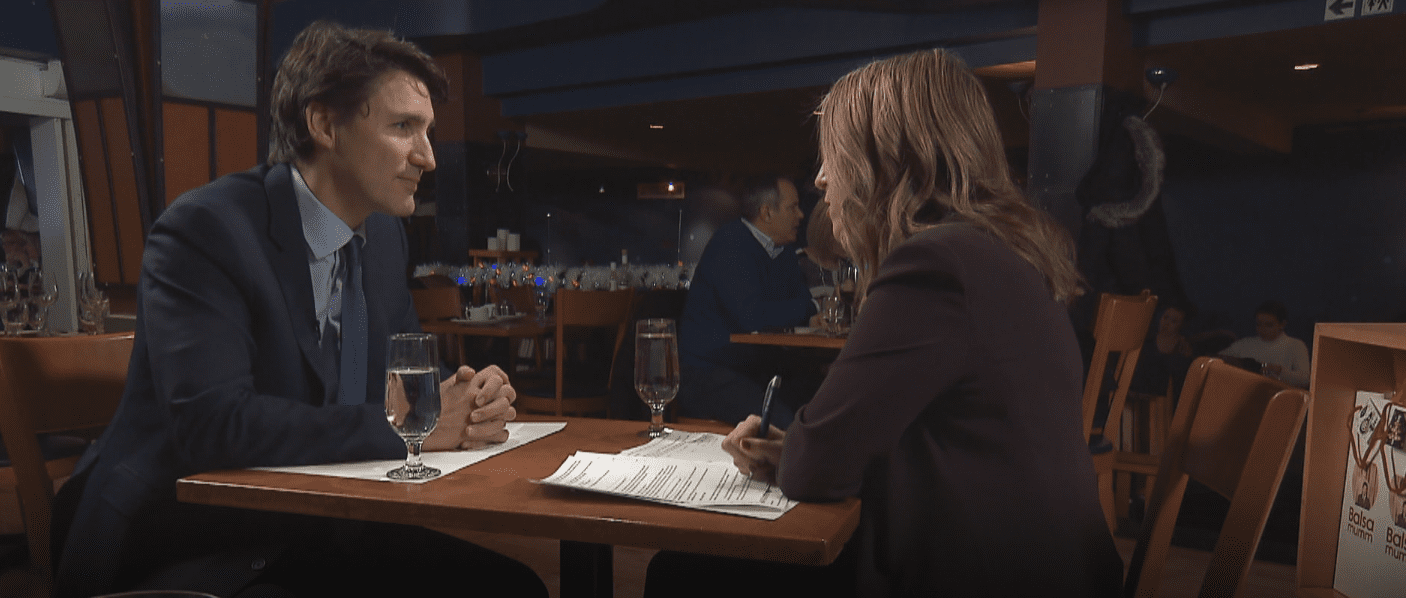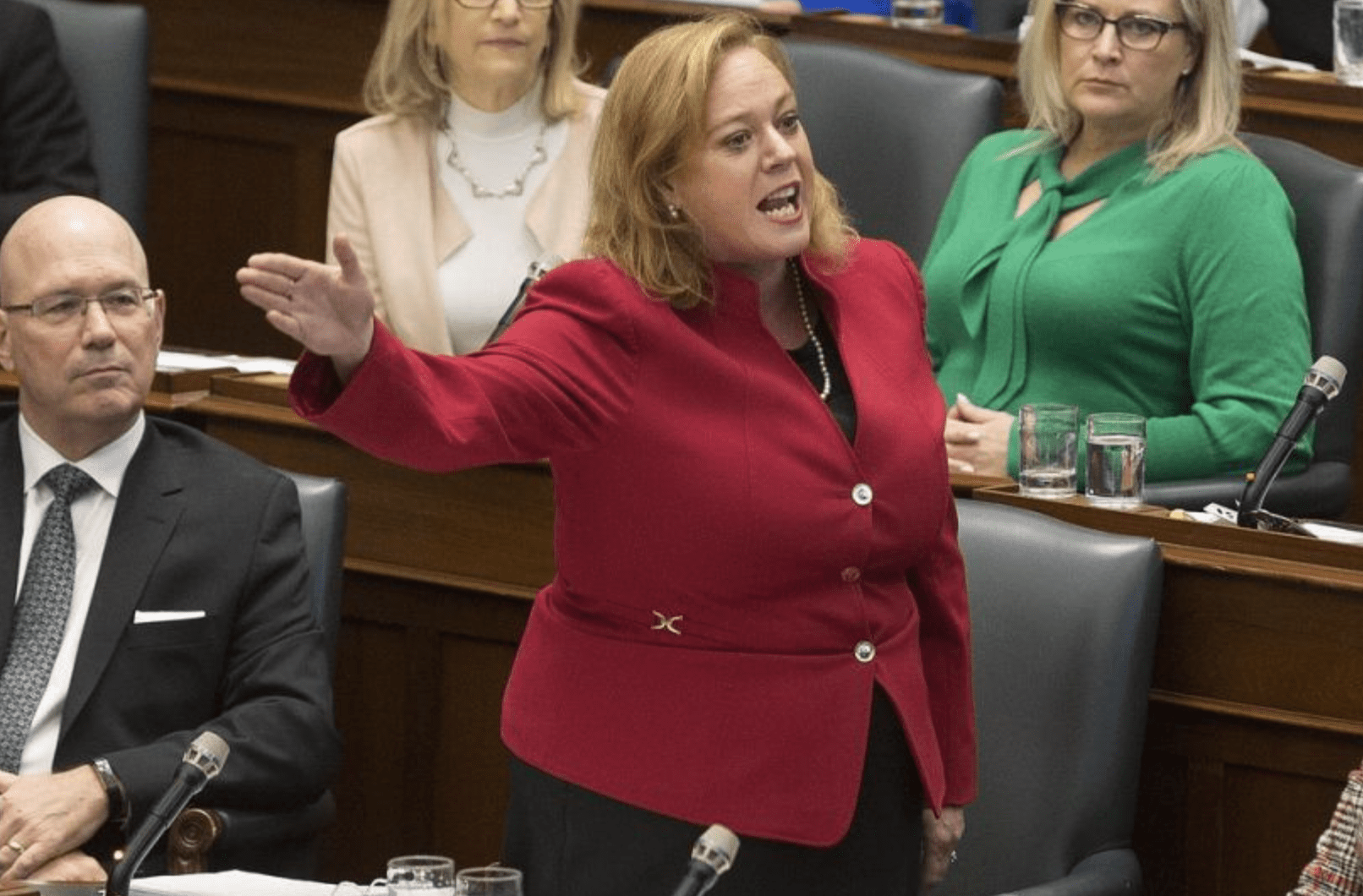In his year-end interview with CBC's Power & Politics, prime minister Justin Trudeau was asked about whether or not there is a national unity crisis in the country, and whether the dire bleatings of Andrew Scheer, Jason Kenney, Doug Ford, and others, that the country had never been "more divided," was something that concerned him. Trudeau, it seems, is not playing that game and quite rightly.
"Canada is a country of regions, of diversity there's always different regional dynamics going on," Trudeau said. "We need to take very seriously the very real anxiety and frustration that people in Alberta and Saskatchewan are facing. But I also know that they remain Canadians that want to be contributing to the country, that want to be building a better future for their kids, and we need to do a better job of showing them that the future doesn't just include them, but it needs them."
He went on to say that he doesn't share the assessment that national unity has never been more divided. "There is a level of rhetoric that is maybe not as reassuring as it could be. There are very real frustrations there is very real anger that needs to be dealt with in Alberta and Saskatchewan."
Ah, yes, the anger. Stoked by Kenney and to a lesser extent his mini-me, Scott Moe it is the great distraction. Designed to shift attention away from the decades of mismanagement in the province, and more importantly, the cuts that Kenney is making right now, it is both a sword and shield. So long as Kenney tries to insist that the problems with the province's oil and gas industry are the fault of someone else first Rachel Notley, then Justin Trudeau it keeps the focus away from the hard truths that Albertans don't want to face.
And the so-called separatist threat, dubbed "Wexit" by people who aren't clever but like to think they are? Considering that it's a collection of loudmouths and swivel-eyed loons, with one of their more prominent ringleaders being a conspiracy theorist, it's just as well that Trudeau doesn't give them the attention that they crave. (Would that the media do the same). By minimizing them, by not giving them legitimacy, Trudeau is doing far more to take the wind out of their sails than Kenney is. They are the bigger threat to Kenney than Trudeau stoking an anxious population to anger and making lunacy sound credible, all in the hopes of using them as leverage against the prime minister, runs the very real risk of blowing up in Kenney's face. He may think he's clever enough to outrun the fires he's setting, hoping to swoop in and put them out so that he can claim the status of hero and champion of national unity, but given the current mood for authoritarian populism in the western world, this could metastasize under Kenney's nose and become a legitimate, credible problem, if he doesn't stop the course that he's on.
As for Trudeau, he has been navigating these waters more skilfully than one may have initially thought probable. For starters, he's been calling Kenney and Moe's bluffs on their demands for equalization reform. When Moe came to visit Trudeau and put on a big song and dance about it, Trudeau's response was that Moe is currently the chairman of the Council of the Federation, and if he thinks he can get the unanimous support of the other provinces to come up with a different, better formula, he'd take a look at it then. Moe, knowing that this was never, ever going to happen, has suddenly grown quiet about the demands for equalization reform, as has Kenney. Instead, they have shifted their demands toward the Fiscal Stabilization Program, which is fully in the federal government's hands, and since other provinces don't have to worry about losing any equalization, have signed onto their support for the move.
The appointment of Chrystia Freeland as not only intergovernmental affairs minister, but also deputy prime minister with actual heft to the portfolio rather than just a symbolic title also shows that he is use his bench strength to its greatest effect. Where Trudeau once felt that he was his own best asset particularly in dealing with the provinces he now has the someone who stared down the Trump White House and came away victorious to deal with the premiers who are hoping to capitalize on the election results and the media narratives circulating around it. He knows that Freeland won't be pushed around, and the premiers know that too, and they have started striking a very different tone with her, because they know their bellicose noises won't work with her in the picture. It changes the game, and there has been a marked reduction in the rhetoric since.
There are still trip-wires around Trudeau on the unity file. So long as Kenney, Moe, and their federal counterparts continue to lie about the former Bills C-48 and C-69, and reiterating the false narratives around them, there will be problems (though again, Kenney in particular has toned down the hostility around laws because he knows that his bluff is being called on them). There will be challenges in the coming months as some of the usual mouthpieces are starting to agitate over the approval of the Teck Frontier mine never mind that it's yet another project with dubious economics, they are keen to make a symbol of it. The caterwauling about the federal carbon price is already starting to fall apart as more provinces are backing down, both in the face of the election results and as courts increasingly rule against them. Suddenly all of those apocalyptic divisions seem a lot less world-ending, and the language being used around them is looking a lot more transparently opportunistic. The country won't fall apart if we don't give into Kenney and Moe's demands, and in the process, we may soon find that the support that Kenney and Moe have been counting on isn't really there.
Photo Credit: CBC News








